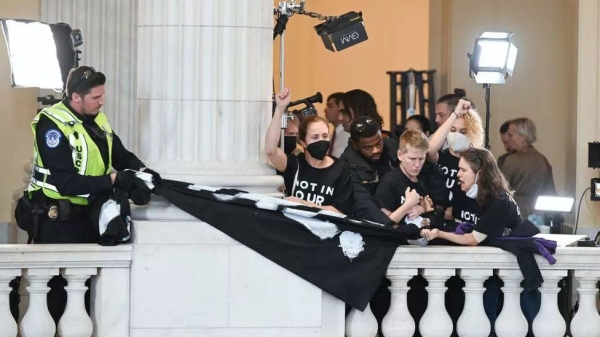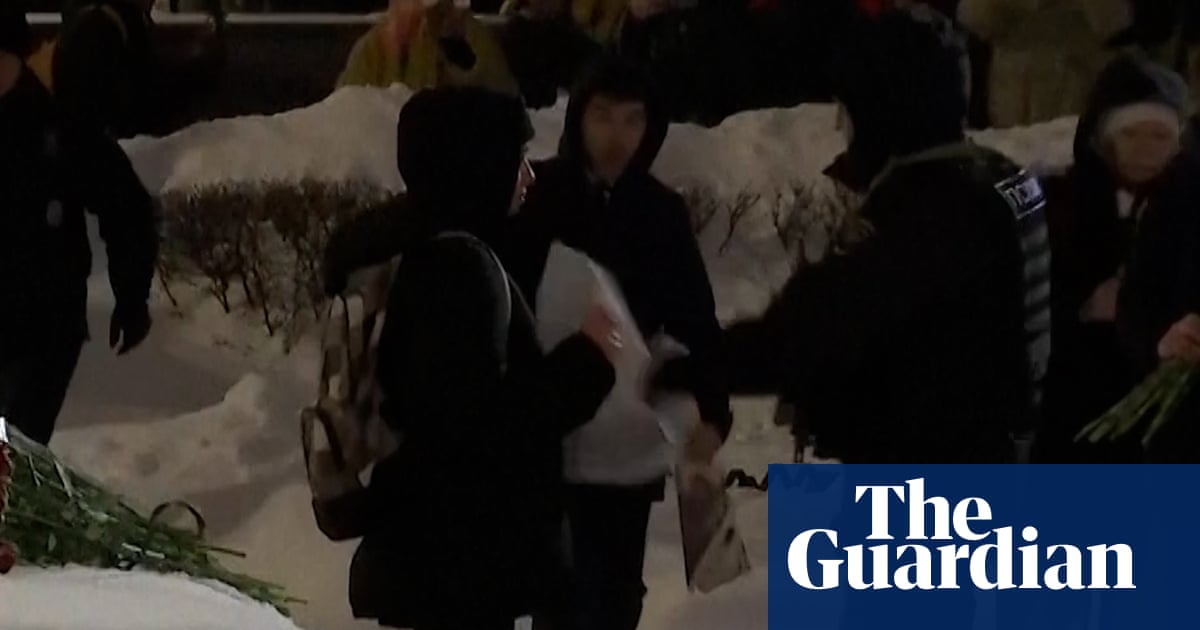
MOSCOW — Russian police have detained the wife of opposition leader Alexei Navalny during one of dozens of protests across Russia calling for her husband"s release.
Yulia Navalnaya posted a selfie to Instagram on Saturday afternoon, apologizing for the poor quality due to "bad lighting in the paddy wagon". She had previously posted a picture of herself at the rally in Moscow.
Navalnaya is one of hundreds of protesters who have so far been arrested at the nationwide demonstrations in temperatures as low as -50 degrees Celsius. They were planned earlier this week in response to Navalny"s own arrest last Sunday.
The Kremlin critic was met by police as he arrived in Russia after spending the previous five months in Germany, where he was recovering from being poisoned. He had been given the deadly nerve agent Novichok in an act he believes was likely sanctioned by his biggest rival, Russian President Vladimir Putin.
Following his arrest, a judge jailed him for 30 days for violating the terms of a suspended sentence from 2014 over a conviction for financial misdeeds. Navalny maintains the cases were politically motivated. He will return to court in February to find out if he will serve his more than three-year prison sentence.
On Saturday, around 350 arrests were reported at early protests in the Far East and Siberia, according to the OVD-info organization that monitors political detentions, while many more were expected at afternoon rallies further west - in Moscow and Saint Petersburg.
Yekaterinburg, Tomsk and Vladivostok all saw thousands of people gather, while early reports said thousands were showing up in the capital, too. Descending on Pushkin Square, demonstrators were reminded via a public address system to socially distance due to coronavirus concerns.
In all, more than 60 protests were planned across the country, which authorities had attempted to dampen throughout the week. This included pressuring social media app TikTok to prevent young audiences from being encouraged to attend.
Navalny"s associates in Moscow and other regions were also detained in the lead-up, while opposition supporters and independent journalists were approached by police officers with official warnings against protesting.
Universities and colleges, meanwhile, urged students to avoid attending, with some threatening disciplinary action, including expulsion. — Euronews












